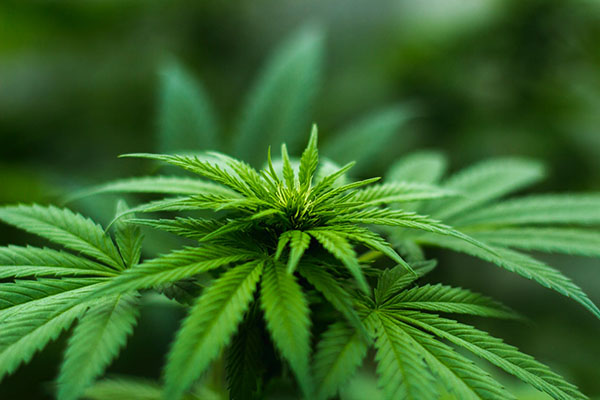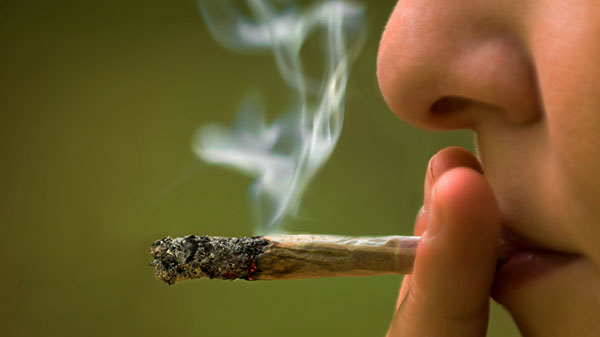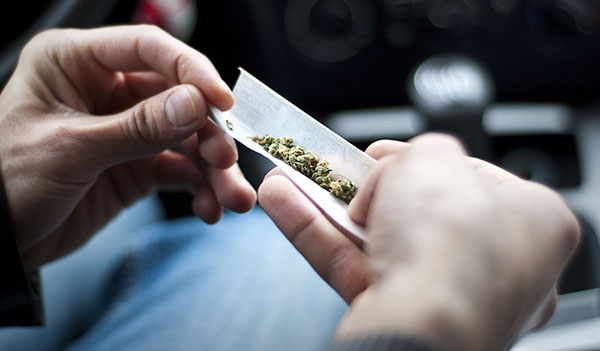By Yvonne Sam
Social and Political Commentator
 “God keep our land glorious and free! O Canada, we stand on guard for thee. O Canada, we stand on guard for thee.”
“God keep our land glorious and free! O Canada, we stand on guard for thee. O Canada, we stand on guard for thee.”
The words above are the lyrics to the Canadian national anthem, but sadly, none of it rings true any longer. Oh! Canada can’t you see, no one is standing on guard for thee.
Today while there is much more knowledge available than any other time in history, very few would take umbrage at the revelation of the fact that people are no wiser than before. On the other hand, many would contend that we are living in a particularly foolish period — a period that is largely and visibly wisdom-free, especially among those with the most knowledge: the best educated.
Catapulting at an almost rapid pace as the absence of wisdom, is the decline in morality. Canada, as a nation, continues to define, reinvent or undermine morality in dramatic fashion. A decline in morality, and a turning point of the Cultural Revolution took place in 1967, when the then-justice Minister, Pierre Elliot Trudeau, stated, “The government has no business in the bedrooms of this nation.”
He made this declaration while introducing a bill to decriminalize homosexuality. Sprouting roots from this was the general acceptance of homosexuality in Canadian society, which many now believe, is not a matter of choice, but genetically decided.
Toronto has the largest Gay Pride parade in North America and is considered a homosexual tourist destination. The Ontario Superior Court ruled, on July 12, 2002, that the banning of same-sex marriage was unconstitutional and clearly in violation of the Charter of Rights and Freedoms. This quickly led to the courts allowing same-sex marriage, the following year. Canada was well on her way to moral decay.
Sad, but nevertheless blatantly true, the approach taken by Canada is, that if a problem cannot be solved, it should simply be legalized so that it can be “controlled”. This point is borne out, for example, in Vancouver, where the problem of heroin addiction is addressed by providing addicts with facilities in which they can “safely” abuse the drug.
No longer does Canada stand on any moral high ground when seeking solutions to its problems. Concepts of “right vs. wrong” are abandoned in favor of whatever is the current popular sentiment.
The CIA publication, The World Factbook, under the heading “transnational issues”, states that Canada is an “illicit producer of cannabis for the domestic drug market and export to US.” Seemingly, not too many Canadians were overly concerned with this issue, considering the headlines and the “talk radio” discussions about decriminalization of the drug.
On April 13, 2017, the act to legalize the recreational use of weed was first introduced, and later passed, at the House of Commons in November. Bill C-45, otherwise known as the Cannabis Act, stemmed from a campaign pledge of Prime Minister Justin Trudeau to keep marijuana away from underage users and reduce related crime. Now Prime Minister Justin Trudeau says recreational marijuana will become legal in Canada on October 17.
Such a move made Canada the second country in the world — and the first G7 nation — to implement legislation to permit a nationwide marijuana market. In December 2013, Uruguay became the first country to legalize the production, sale and consumption of marijuana.
On Twitter, Trudeau praised the bill and focused on Canada’s youth. The justice minister, Jody Wilson-Raybould, also applauded the vote. “This is an historic milestone for progressive policy in Canada,” she tweeted.
The belief, held by the government, is that hitherto, it had been far too easy for kids to get marijuana, and for the profits to be harvested by criminals and organized crime; the passage of the Bill has put a stamp on that.
As local rules of implementation are decided provincially, the availability of marijuana will vary across the country. In Alberta, recreational weed will be widely available at more than 200 private retailers, across the province. On the opposite end of the spectrum, marijuana availability will only be provided in 40 state-run shops in Ontario. In Newfoundland and Labrador, it will be available in Loblaws grocery stores.
Weight and Fate
Under the proposed plan, 30 grams of dried marijuana is the maximum a person can legally possess in a public place. Carry any more and you could be subject to fines, jail time, or both.
Peace and the Police
The policing of quantities is a big shift for the police, formerly accustomed to viewing any amount of weed as a red flag. Legalization of the substance has called for a different approach—the police have to move on.
Sandy Sweet, of the Canadian Police Knowledge Network, an agency that provides online training courses for police officers, says that, “we have to train every police officer in the country what the law says they’re allowed to do, and not allowed to do, in these new scenarios.”
Sweet’s group has been working with the RCMP and the Canadian Association of Chiefs of Police, to design online training for all of Canada’s roughly 69,000 police officers. The plan is to launch the training by July.
Drug- Impaired Driving—The Threat of Death
Passing alongside Bill C45 was Bill C 46, the impaired driving bill, which the Senate unanimously agreed on passing as-is, and not insist on its amendments. This new legislation proposes changes to the existing impaired driving laws, thereby giving the police new powers to conduct roadside intoxication tests, including oral fluid drug tests, and would also make it illegal to drive within two hours of being over the legal limit.
To coincide with legalization, the federal government is preparing to update its impaired driving laws; police will use saliva tests to detect whether drivers have drugs in their system. Officers will have to be trained on the new equipment, but at present, it is still unknown which models of oral fluid testing devices will be utilized by law enforcement.
The Canadian Society of Forensic Science’s Drugs and Driving Committee is evaluating the equipment, following which, recommendations will be made. According to Mario Harel — Chief of Gatineau, Quebec’s police force and president of the Canadian Association of Chiefs of Police — police forces have been trying to increase the number of officers, who have specialized training as Drug Recognition Experts, and to make sure officers know how to conduct the standardized field sobriety test, both of which are now used to detect impaired driving. As such, the government recommends that “the safest approach for anyone, who chooses to consume cannabis, is to not mix their consumption with driving”.
Order at the U. S Border
While this new marijuana legalization law may signal a first for Canada and Canadians, it has, at the selfsame time, brought, in its wake, enhanced screening for Canadians at U. S border crossings. Those who cross the border, regularly, to enter the U. S., should be prepared for the U. S border patrol officials asking pointed questions about their drug histories.
Canadians are already being warned, by U.S immigration lawyers, of the possibility that they could be denied entry to the U.S., or barred from the United States for life, should they admit to smoking cannabis to a border agent. Despite legalization in some U.S. states, cannabis still remains a prohibited substance under U.S. federal law.
Current U. S Attorney General, Jefferson Beauregard Sessions, an impassioned anti-drug crusader, forewarned a group of Canadian Conservative senators, that there could be longer wait times at the border because of enhanced, secondary screening of Canadians.
The State of Real Estate—Dwelling versus Re-selling
The Canadian Real Estate Association (CREA) said that the Liberal government’s plan to allow so-called “home grow” (home cultivation of marijuana plants) could lead to the spread of mold and other fungi in residences across the country, all of which could result in some costly surprises for home buyers.
 “There’s absolutely no question it impacts the value of the home,” Michael Bourque, Chief Executive Officer of CREA, told senators, adding that the physical effects of a grow op, can often go undetected during a home inspection.
“There’s absolutely no question it impacts the value of the home,” Michael Bourque, Chief Executive Officer of CREA, told senators, adding that the physical effects of a grow op, can often go undetected during a home inspection.
There are currently no provincial remediation standards for the safe re-occupancy of former marijuana grow operations, Bourque said. Many mortgage companies are reluctant to insure homes once used for that purpose, he said, which makes selling them more difficult.
To assuage, lower the voting age
Having yet more say in the process of decay, by putting age on the stage, both the Canadian government and political parties are once again advocating lowering the voting age to 16. According to Andrew Weaver, leader of the Green Party in British Colombia, 16-year-olds can drive and they can get married, but in Canada they cannot vote.
 He further points out that “research shows that by age 16 the cognitive skills required to make calm, logically informed decisions are firmly in place. The young citizens of British Columbia are also the leaders of tomorrow, and as such, should have a say in the direction we are heading, as they will inherit what we leave behind”.
He further points out that “research shows that by age 16 the cognitive skills required to make calm, logically informed decisions are firmly in place. The young citizens of British Columbia are also the leaders of tomorrow, and as such, should have a say in the direction we are heading, as they will inherit what we leave behind”.
Historical Falls—Present Calls
In one of his six volumes, “The History of the Decline and Fall of the Roman Empire”, the author, English historian, Edward Gibbon, pointed to a singular major cause, as the precursor for decline in the Western Roman Empire— moral decay. He furnished evidence of this moral decline, speaking on things, such as loss of national work ethic, failure of the patriarchal society, sexual perversity, political corruption and ultra-multiculturalism, where Rome lost its core identity.
Regardless of the theory surrounding the decline in culture, Lord Patrick Devlin stated that “an established morality is as necessary as good government to the welfare of society.” He further stated that, “societies disintegrate, from within, more frequently than they are broken up by external pressures.”
The condition of moral decline is seen as preceding or concomitant with the decline of the quality of life and the decline of nations. Lending support to this axiom, General Douglas MacArthur, Chief of Staff of the U. S Army during the 1930’s is quoted as follows: “History fails to record a single precedent, in which nations, subject to moral decay, have not passed into political and economic decline.”
It is apparent that Trudeau’s recent marijuana legislation was a policy steeped in highly doubtful claims and overinflated optimistic expectations. Will “pot” serve as the cooking utensil for more lethal substance abuse? The answer is positive, as there still remain many unaddressed concerns.
Any nation that fails to heed the lessons of previous failing and fallen cultures are liable to repeat their mistakes. The final warning is Just-in, Canada must incline her ear or this nation will be vulnerable to decline, just as other cultures experienced.
President Donald Trump has talked about building a wall on the US’s southern border, on the northern side, there may be a need to contain Canadians, stoned on weed.
Yvonne Sam, a retired Head Nurse and Secondary School Teacher, is Vice-president of the Guyana Cultural Association of Montreal. A regular columnist for over two decades with the Montreal Community Contact, her insightful and incursive articles on topics ranging from politics, human rights and immigration, to education and parenting have also appeared in the Huffington Post, Montreal Gazette, XPressbogg and Guyanese OnLine. She is also the recipient of the Governor General of Canada Caring Canadian Citizen Award.
 Pride News Canada's Leader In African Canadian & Caribbean News, Views & Lifestyle
Pride News Canada's Leader In African Canadian & Caribbean News, Views & Lifestyle






